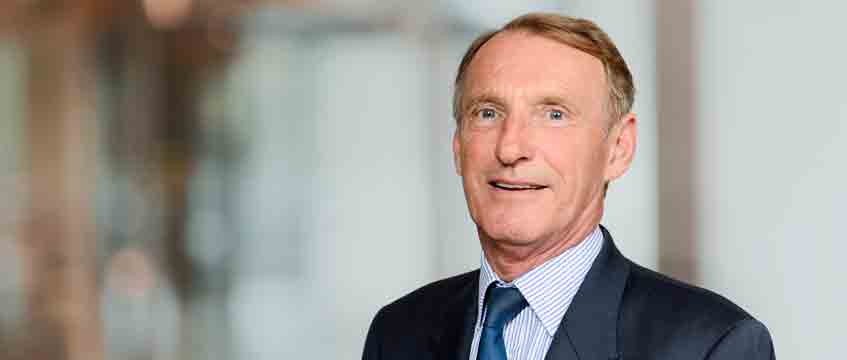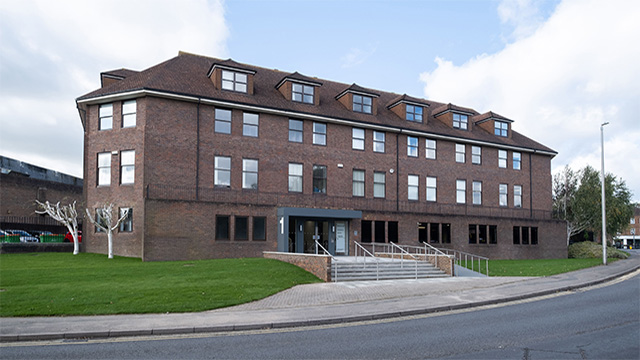Helsby hands over the Savills reins
As you read this, Jeremy Helsby is relaxing. Having stood down as chief executive of Savills at the end of last year, the 38-year veteran of the firm left with a promise that he would spend the first few months of 2019 with his feet up. Holidays, not board meetings, are high on his agenda.
Inevitably some former colleagues will ask: what’s new? Having led Savills for the past 11 years and plotted its growth to 60 offices, he spent much of his recent working life in hotels, on planes and in lounges anyway. Even his successor Mark Ridley scoffs when Helsby suggests he hasn’t had a holiday in 11 years. As they spar, sat in the EG podcast studio before Christmas, the pair are preparing to fly to China. You get the sense they will miss these adventures.
As you read this, Jeremy Helsby is relaxing. Having stood down as chief executive of Savills at the end of last year, the 38-year veteran of the firm left with a promise that he would spend the first few months of 2019 with his feet up. Holidays, not board meetings, are high on his agenda.
Inevitably some former colleagues will ask: what’s new? Having led Savills for the past 11 years and plotted its growth to 60 offices, he spent much of his recent working life in hotels, on planes and in lounges anyway. Even his successor Mark Ridley scoffs when Helsby suggests he hasn’t had a holiday in 11 years. As they spar, sat in the EG podcast studio before Christmas, the pair are preparing to fly to China. You get the sense they will miss these adventures.
But Helsby is not flying off into the sunset entirely. He will stay on as a consultant to Savills for a year, focusing on developing its North American business.
And while he’s open to other offers too, he is no hurry to take them up.
“I’ve been offered a number of consultancies and a number of people have asked me if I could help and sit on various boards as an adviser,” he says. “I think one piece of advice for anybody going to do this one day is don’t rush into things. It’s easy to get offered all sorts of exciting opportunities. The danger is you accept them all and you find you are as busy as you were before you gave up. So I’m going to take stock and then take on one or two.”
If Helsby is planning an orderly succession to a plural life, don’t be surprised: his departure has been well planned over the past three or four years.
Ridley has been with Savills since 1996 and has led the commercial business, the UK business and the European business in that time. As of 1 January, he is group chief executive.
“As far as the market staff and, indeed, the shareholders are concerned, they’ve also been very positive about it and have encouraged and welcomed it,” says Helsby.
It’s easy to get offered all sorts of exciting opportunities. The danger is you accept them all and you find you are as busy as you were before you gave up
The firm he leaves is unrecognisable from one he joined in 1980. “In those days it was a predominantly agricultural and residential business,” he says. “It had a turnover of £12m, a profit of £1m. It was a partnership, had no overseas offices at all and was predominantly transaction dominated. Compare that to today. £1.6bn of revenue, 600 offices in 60 countries and more than half our revenue comes from overseas.”
Helsby singles out one deal as being key to Savills’ growth. “The most transformational transaction we ever did was the acquisition of FPD in 2000, our Asian business at the time. The plan was that FPD would acquire Savills and then we had the Asian crisis. We saw an opportunity to buy 100% of FPD and that gave us our Asian business which is now, unquestionably, one of our biggest growth engines of the whole business.” One day, perhaps soon, it will be the largest part of business.
Over the next year as a consultant, Helsby will focus on growing the margin in the US. “It has always been my baby and so it’s really just helping Mark understand the challenges and the issues going on in the US and helping him grow that business over the next 12 months or so.”
There’s little doubt that challenges will come from all sides over the next 12 months: from the hard reality of Brexit to the threat of a US-China trade war.
It might be a better time to leave a leadership position at a global business than to take one on. Ridley disagrees.
“When I took over from Jeremy’s previous role in 2008, it was a year before the GFC. So I’m used to turbulence,” he says. “I think it’s a good time to take over. I like challenges, I guess. When we’ve had more difficult markets, sometimes that’s the best time for the business to grow because there are more opportunities.”
It’s not just markets that are changing, tech is impacting too. It could, acknowledges Ridley, make Savills less people-dependent in future: “In some areas, yes,” he says, citing valuations as an example. But its impact will to shift people, not to reduce headcount. “I don’t believe that we’re going to have a net reduction of employees,” he says. “I think we’re going to continue to grow and where we see that opportunity we will reposition people.”
Looking back, rather than forward, Helsby adopts a similar tone. “Whenever we buy a business it isn’t just about the money. It is absolutely about the people. I always say to our investors the balance sheet is not the pounds, shillings and pence, it is the people.
“If you can’t get the people right or the culture right then everything else is irrelevant. And I think that’s where Mark and I have worked hand-in-glove over the past 10 years to ensure that that culture really is maintained across the globe.”
To send feedback, e-mail damian.wild@egi.co.uk or tweet @DamianWild or @estatesgazette











